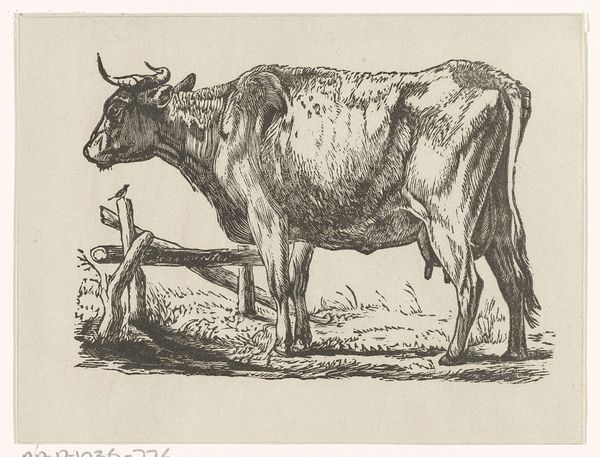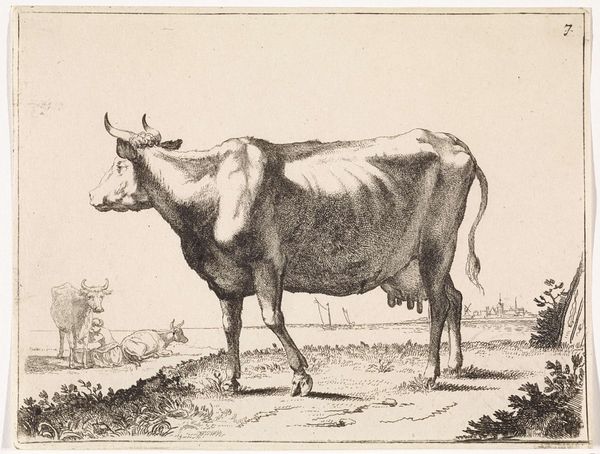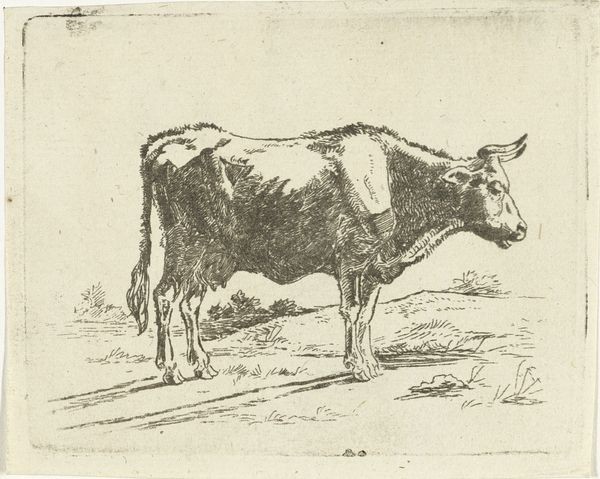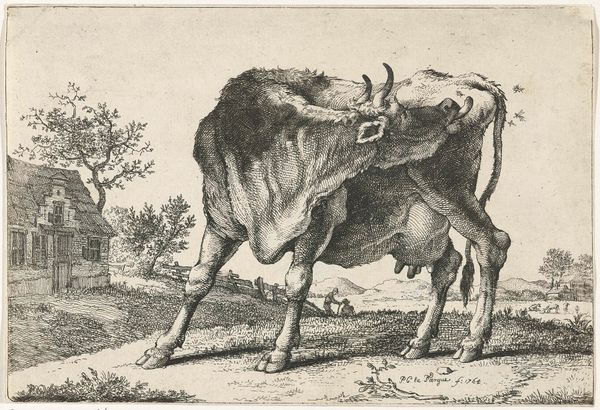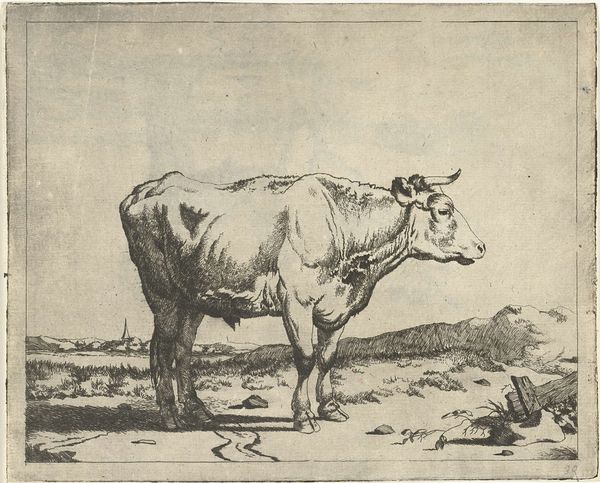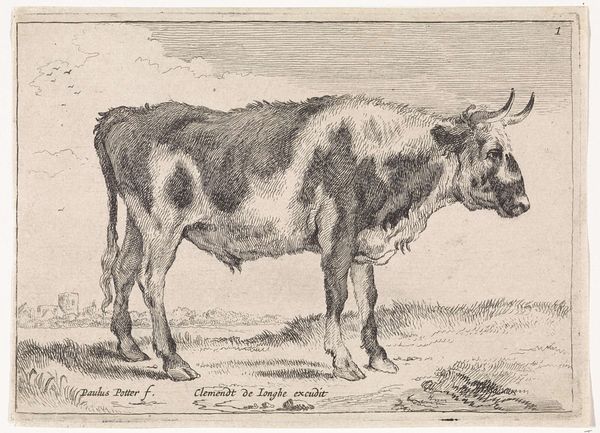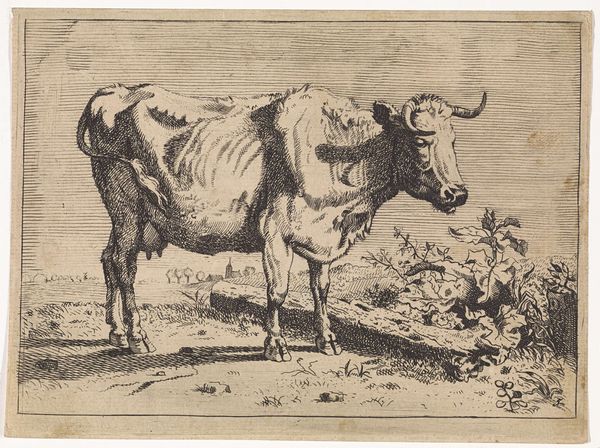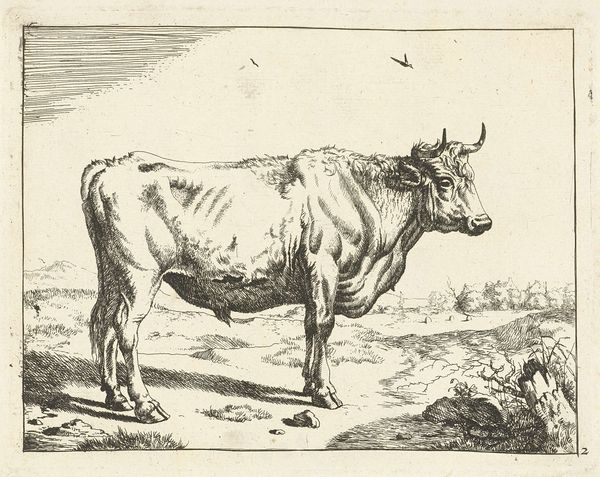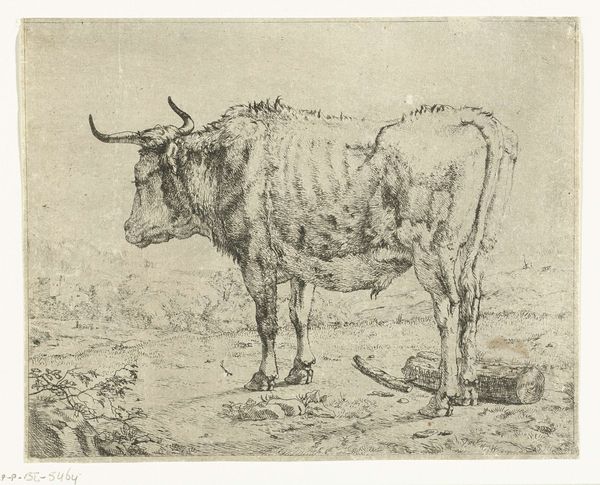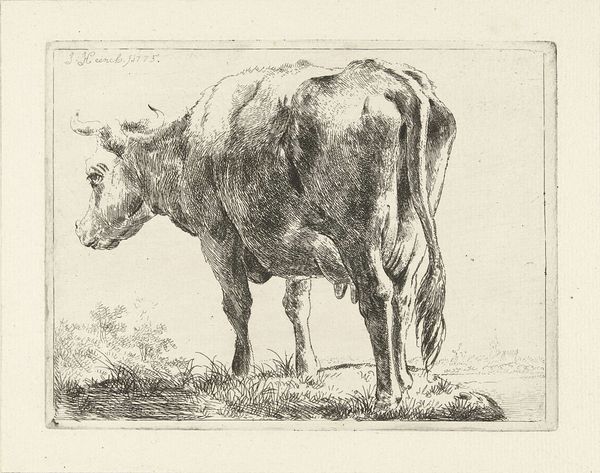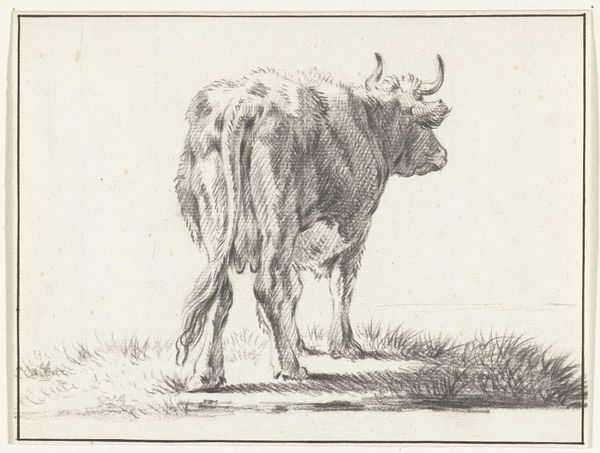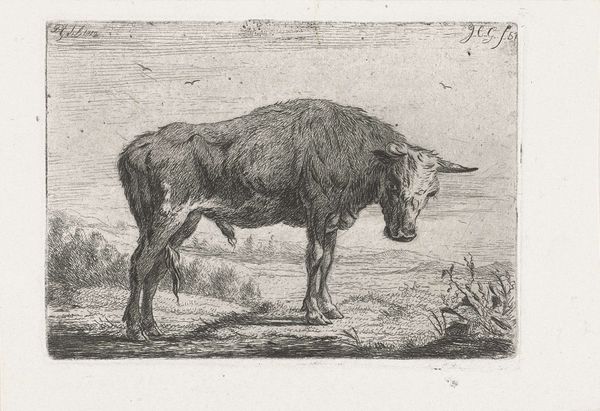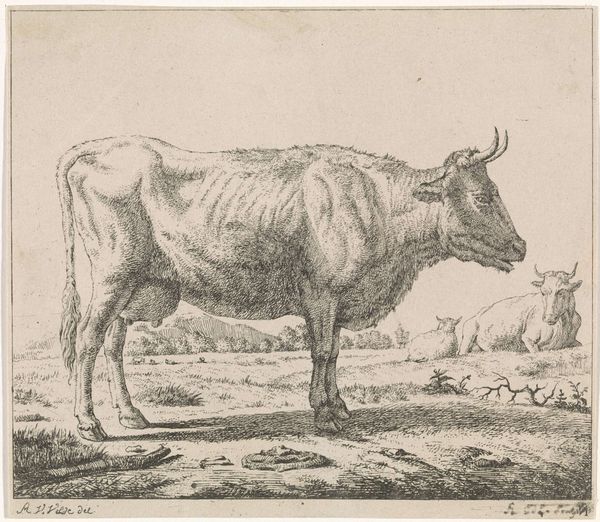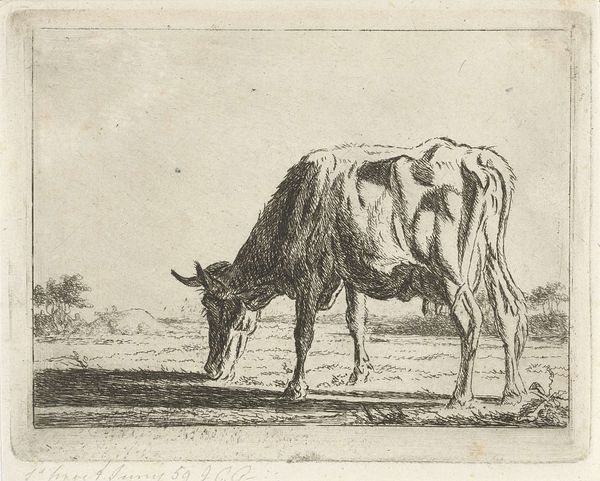
drawing, ink
#
drawing
#
pen illustration
#
pen sketch
#
landscape
#
ink
#
pen-ink sketch
#
genre-painting
Dimensions: height 103 mm, width 136 mm
Copyright: Rijks Museum: Open Domain
Editor: We're looking at "Koe," a pen and ink drawing by Barend Johannes Bouwmeester, created sometime between 1819 and 1902. I'm immediately struck by the detail achieved with simple lines. The texture of the cow’s coat feels so tangible. What do you see when you look at this drawing? Curator: It is a fascinating demonstration of how line alone can articulate form and volume. Notice the density and direction of the hatching. Bouwmeester masterfully uses these elements to create shadows, suggesting the roundedness of the cow's body. The contrast between the more defined lines on the forequarters versus the lighter treatment of the rear creates an illusion of depth. Do you observe the difference in the application of ink? Editor: Yes, definitely. The use of thicker lines in the front makes that area stand out. Is that typical of drawings of this period? Curator: Not necessarily "typical", but characteristic of a keen artistic eye focusing on form. By varying line weight and density, the artist creates a hierarchy of visual information, drawing our eye to key areas. It prioritizes the internal compositional logic of the artwork. Editor: So, you're saying the focus isn’t necessarily on accurately depicting the cow, but more on playing with artistic techniques like shading and depth using lines? Curator: Precisely. The subject matter is almost secondary to the exploration of line, tone, and composition. Consider how Bouwmeester uses the negative space around the cow. It isn't merely empty; it defines the cow's form and contributes to the overall balance of the composition. Editor: That’s a really interesting perspective. I was so caught up in trying to interpret what it meant to portray a cow. Curator: By shifting our focus to the formal elements, we gain a richer understanding of the artist’s choices and the artistic intentions. Editor: Thanks for pointing out those details. It really opens up a new way of appreciating the artwork!
Comments
No comments
Be the first to comment and join the conversation on the ultimate creative platform.
